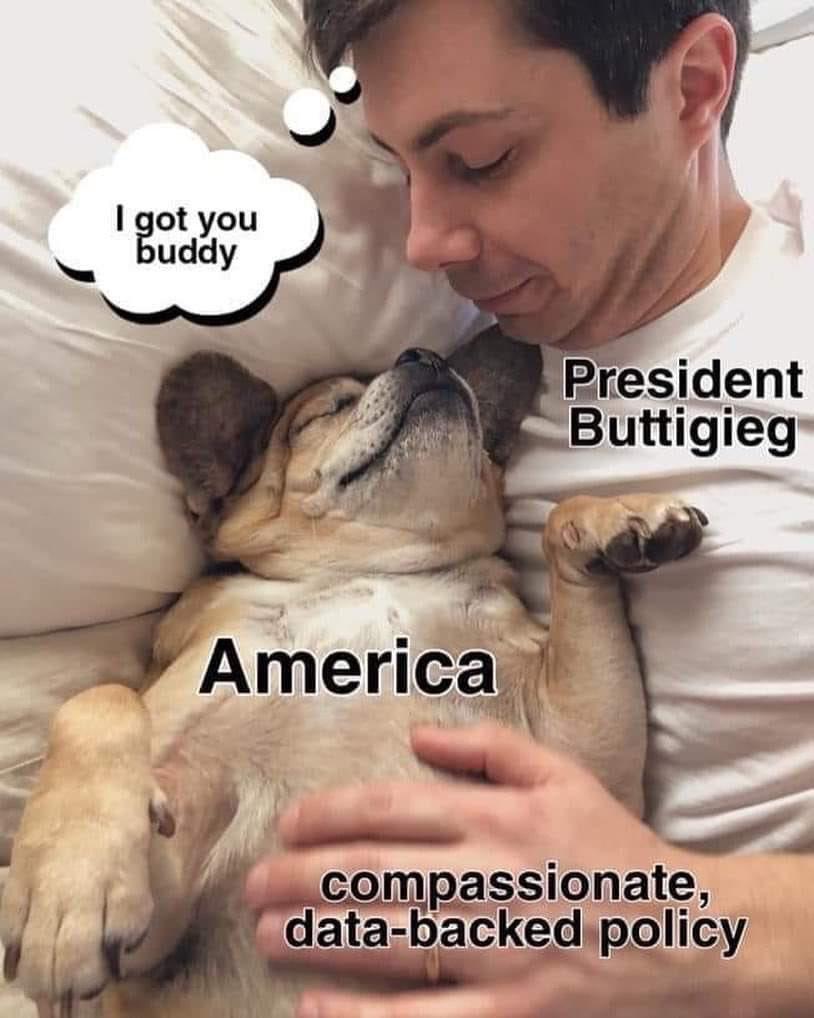An early straw poll of liberal voters conducted by the progressive political action committee MoveOn in December showed a decisive front-runner in the 2020 Democratic presidential contest: “someone else.”
A plurality of respondents — 29 percent — either said they did not yet know whom they would support or wanted someone else not listed among the group’s more than 30 potential candidate choices.
Lately, I have grown increasingly intrigued that one certain candidate could become that “someone else.” His name is Pete Buttigieg, and he is the 37-year-old, openly gay mayor of South Bend, Ind. Sounds like a long shot, I know, but we would all be well-advised to practice pronouncing his name (“Boot-edge-edge,” say it fast!). Over the course of a few months, he has undergone a metamorphosis from underdog to serious challenger.
There’s one big question Buttigieg’s campaign will have to answer again and again in the coming months. Why is the young mayor of a mid-sized Midwestern city running for president? Admittedly, South Bend is not a traditional launching pad to the Oval Office, but don’t sell his credentials short. Elected at the ripe old age of 29, he has eight years of elected executive experience under his belt — more than Donald Trump, obviously, and more than Vice President and former Indiana Governor Mike Pence. He is also a lieutenant in the U.S. Navy Reserve and took seven months leave from his mayoral term to perform counterterrorism work in Afghanistan. When he left office, Barack Obama named him one of four Democrats who best represented the future of the party.
Along with longer-than-long-shot Rep. Tim Ryan, he is one of just two candidates so far hailing from the six Midwestern states won by Obama but lost by Hillary Clinton: Iowa, Ohio, Indiana, Michigan, Pennsylvania and Wisconsin. So, not surprisingly, the concept that someone from the industrial Midwest could address the Democratic Party’s failures to connect with voters from that part of the United States is central to Buttigieg’s candidacy. In a 2016 Medium post entitled “A letter from flyover country,” he noted that he won 80 percent of the vote in a Rust Belt city in a county that would later split its vote evenly between Clinton and Trump. That was immediately after he publicly came out as gay in an op-ed to the South Bend Tribune in a deep-red state largely supportive of Pence’s Religious Freedom Restoration Act.
And as the mayor of a city that suffered and declined steeply in the aftermath of deindustrialization (the departure of defunct car manufacturer Studebaker), Buttigieg is exceptionally attuned to a segment of the country that still feels forgotten. At the same time, he doesn’t dwell on the stagnation of today’s Midwest by yearning nostalgically for yesteryear.
“At home, I ran and won, twice, by telling my blue-collar community that Studebaker was never going to come back and make cars in our city, and that it was all right, because there is a way forward,” he said in “A letter from flyover country.” “Now Democrats need to absorb the fact that winning the popular vote is not enough, see that the future trends of the electoral map alone will not save us, and know that it’s all right, because there is a way forward.”
His policies also check all the right boxes as a liberal Democrat — he supports the Green New Deal, single-payer healthcare, statehood for Washington, D.C. and Puerto Rico, abolition of the Electoral College and restructuring of the U.S. Supreme Court. The Buttigieg campaign is currently still in its exploratory stages, but after he launches his formal campaign, we can expect to see more in the way of hashed-out, wonky policy descriptions.
It’s evident that Buttigieg has connected with some sectors of the Democratic electorate. In a recent poll of likely voters in the Iowa caucus, the first primary contest in an unforgivingly long campaign cycle, Buttigieg surged to third place, eclipsing heavyweight candidates such as Sens. Elizabeth Warren of Massachusetts and Kamala Harris of California. He has raised $7 million since January, obliterating grassroots donation thresholds to qualify for the first Democratic primary debate in June. And his memoir, Shortest Way Home, has leapt to 25th place on The New York Times’ bestseller list. (Side note: I have been waiting to check out Shortest Way Home from the ZSR Library for many days. If it is in your possession, I implore you to return it with expediency, and for the ZSR to acquire more copies.)
When Democrats vote next year, they certainly will choose a policy alternative to Trump, but they will also make a statement about what kind of country they want the United States to be. As a voter, I know the harm the Trump administration has inflicted upon our country will require years of damage control. It might be tempting to fight fire with fire and elect an angry revolutionary, but in all likelihood, a fire-and-brimstone candidate that gets us riled up at rallies would not have the policy chops and technocratic skills necessary to make real, tangible progress. Buttigieg seems like he stands a real chance of both connecting with the electorate and succeeding at the hard, thankless work of policy-making and governing.
It’s Day 812 of the Trump administration. I’m sick and tired of the melodrama, flagrant lies, media circus and vicious rhetorical war. All Buttigieg represents — intelligence, insight, self-effacing modesty — is the antithesis of Trump. I’m ready to give him a chance to earn my vote.














Marlowe.38 • Apr 20, 2019 at 3:12 pm
This column has been up a week with no comment. Does anybody read the OG&B? It is as left as most college newspapers, but the others get comments.
Not surprising that Amanda goes for the liberal chic of Mr. B.